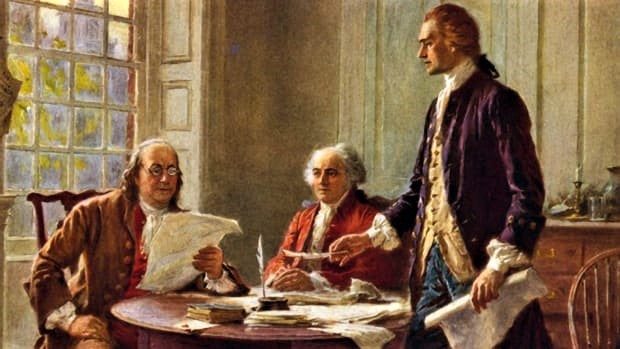
In 1826, a month before the 50th anniversary of the Declaration of Independence, Thomas Jefferson wrote a letter to Washington publisher, and civic leader Robert C. Weightman declining an invitation to attend next month’s celebration due to his “sufferings and sickness.”
While the first reading of American Independence took place on July 8, 1776 in Philadelphia, the first event honoring our independence from England at the White House took place on July 4th, 1801.
A letter from Mrs. Smith to her sister, Ann chronicles describes the festivities.
“About 12 o’clock yesterday, the citizens of Washington and Geo. Town waited upon the President to make their devoirs [compliments]. I accompanied Mr. Sumpter. We found about 20 persons present in a room where sat Mr. J. surrounded by the five Cherokee chiefs. After a conversation of a few minutes, he invited his company into the usual dining room, whose four large sideboards were covered with refreshments, such as cakes of various kinds, wine, punch, &c. Every citizen was invited to partake, and… The company soon increased to near a hundred, including all the public officers and most of the respectable citizens, and strangers of distinction. … All appeared to be cheerful, all happy. Mr. Jefferson mingled promiscuously with the citizens.”
In his letter to Weightman, Jefferson reflects on a document that would guide future generations.
“May it be to the world what I believe it will be… the Signal of arousing men to burst the chains, under which monkish ignorance and superstition had persuaded them to bind themselves, and to assume the blessings and security of self-government. That form which we have substituted restores the free right to the unbounded exercise of reason and freedom of opinion. All eyes are opened or opening to the rights of man. … For ourselves, let the annual return of this day forever refresh our recollections of these rights, and an undiminished devotion to them …”
It was the last letter Jefferson wrote before he died.
In declaring the country’s independence from England, the most powerful country on earth, the document declared to the world a new country that began with these words:
“We hold these truths to be self-evident, that all men are created equal, that they are endowed by their Creator with certain unalienable rights, that among these are Life, Liberty and the Pursuit of happiness.”
However, my favorite lines come at the end. They represent the persistence and strength of character of a people determined to overcome any obstacle to their mutual success.
“And for the support of this Declaration, with a firm reliance on the protection of divine Providence, we mutually pledge to each other our Lives, our Fortunes and our sacred Honor.”
Does the Declaration have anything to do with ethics? It’s the moral center of our history and the standard to which we strive.
While Adams and Jefferson fought over policies as the country struggled to find its footing, their undiminished devotion to the principles of that first document remained unbroken. When they left office, they reconciled and regularly exchanged letters.
On the Declaration’s 50th Anniversary, Adams and Jefferson died within hours of each other.
Comments










